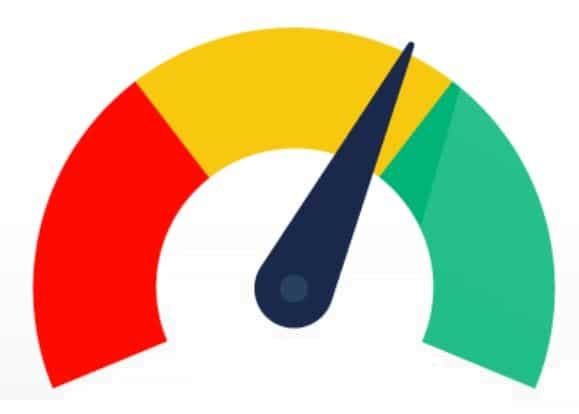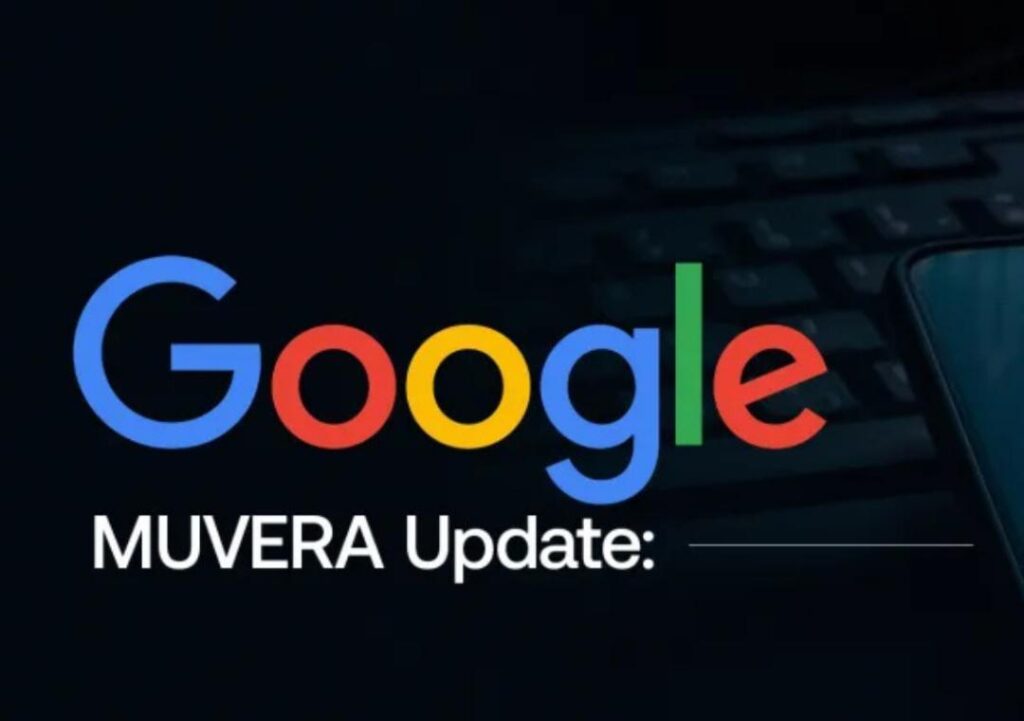Building backlinks will continue to be one of the essential pillars of SEO, often not offered as a service by SEO agencies. The reason is that, in our opinion, it’s a complex and uncertain process that requires a significant amount of time. As SEO Transformers, we provide backlink profile audits and assist businesses in developing a backlink strategy to enhance their website’s authority and trustworthiness. If you’re new to backlinks, start reading from the ‘introduction’ section. If you’re already working on backlinks, feel free to jump to the relevant section. Whether you’re a beginner or an experienced professional in need of assistance with backlink building, you can find more information about our backlink services at the bottom of the page.

Table of Contents
New to SEO
What are Backlinks and why are they Important?
What Does Google Say about Backlinks?
Working on backlink building
Smart Strategies for Building Backlinks
How to Tell if a Backlink is High-Quality
How to Measure the Success of Your Backlink Strategy
Things You Should Absolutely Avoid
Metrics that Matter in Backlink Performance
Frequently Asked Questions About Backlinks
Need help with backlinks
What are Backlinks and why are they important?

Backlinks are like Recommendations from Friends
Imagine you’re planning a fun day out with friends, and you’re deciding on the best restaurant to visit. You then ask the friends whom you trust for their judgment for recommendations on where to go. They suggest you a restaurant, and you feel more confident about it because it comes from people you already trust.
Backlinks are like those recommendations from friends. When a website links to another, it’s like saying, “Hey, you should check out this website; it’s great!” These recommendations, or backlinks, signal to search engines that the linked website is trustworthy, valuable, and worth exploring. So, just as you trust your friends’ recommendations for a great restaurant, search engines trust websites that have lots of high-quality backlinks.

Search engines don’t just look at how many backlinks you have, but also the context in which they are found. A link from a big-name website in your industry can really boost your SEO efforts.
Key Terms You Should Know
1. Anchor Text: Anchor text is the clickable text that has the link embedded in it. Similar to the label on a button. This text should describe briefly where the link will take you.
2. Link juice: This is the SEO value or authority that flows from one webpage to another through backlinks. When a reputable website links to your content, it’s essentially passing on some of its credibility and value to your page. Think of it as a vote of confidence from one webpage to another in the vast online world.
3. No-Follow Link: Sometimes, websites use a “no-follow” tag for specific links to tell search engines, “Don’t pay much attention to these links.” They do this for things like user-generated content, ads, or links they don’t want to affect their search engine ranking.
4. Do-Follow Link: These are like open invitations for search engines. They say, “Follow this link; it’s important!” Most links work this way by default, unless website administrators say otherwise.
5. Domain Authority (DA): Consider it as a website’s rating for online reputation. Websites can gain trust and respect online, just as people can become well-known and respected in their society. Da gauges how much a website is valued and trusted by search engines. Similar to a website’s reputation and popularity in the internet community. A website with a high da shows that it is an authoritative source, whereas one with a lower da says that it is still developing its online reputation. It functions much like a report card for a website’s performance in the online community.
6. Pagerank: One of the metrics Google still uses in it’s algorithms to determine how well-liked and significant a web page is. How many high-quality backlinks a website has is one of several considerations.
7. Inbound links: Those are links that lead back to your website from other websites. Consider them as public praise or recommendations from other websites that your website is worthy of being listed. 8. Outbound links: these are hyperlinks that point to other websites from your own. It’s your way of recognizing other excellent online material. 9. Internal links: these are the links on your website that lead from one internal page to another. They help users navigate your website.
8. Internal Links: These are the links from one internal page to another on your website. They help users navigate your website.
What Does Google Say About Backlinks?

Google’s John Muller stated in a Google Search Center Hangout recorded in Feb 2019 that a good link from a relevant website is more important than millions of low-quality links.
What we can learn from this?
1. Quality Over Quantity Rule
Google has a mantra that you should adopt too: Quality over Quantity. You could have hundreds of backlinks, but if they’re from spammy or irrelevant sites, Google is going to give you the side-eye. So building links from a few authoritative links are way better than many spammy links.
2. Organic is the Way to Go
Google appreciates it when your backlinks come about naturally. This means other sites link to you because your content is kick-butt and offers value, not because you’ve tricked them into it or paid them off. So focus on creating awesome content that people want to link to.
3. Relevance Matters
Another thing Google is keen on is relevance. If you’re a fitness blog and you’ve got backlinks from a tech blog, a cooking site, and a travel blog, Google’s going to be confused. It wants to see backlinks from other health-related or fitness blogs because that adds to your credibility and relevance in your field.
So there you have it—a Google-friendly backlink approach wrapped up in everyday lingo. Keep it high-quality, keep it relevant, and definitely keep it organic, and you and Google will get along just fine.
This is why, at SEO Transformer, we assist businesses by conducting backlink audits and offering recommendations for link-building strategies rather than building the links ourselves. While we are capable of executing the link-building process, we believe it’s more efficient to empower businesses to implement it organically within their available resources.
Heads up to zero cheating rule! Google has a sixth sense for dodgy backlink practices. You know, like buying backlinks or using spammy tactics to get them. Do this, and you’re asking for a penalty, which is Google-speak for “Your site is going to drop in the rankings, and it’s not going to be fun.”

Smart Strategies for Building Awesome Backlink

Imagine building backlinks as if you’re connecting with people – it takes time, effort, and the right approach. Here are some advanced tactics for creating a strong backlink profile that is as straightforward as chatting with friends:
1. Content Marketing: Think of your content as a good story to share with your users. Whether it’s a blog post, a detailed research report, or a captivating video, the goal is to create content that people genuinely enjoy and want to pass along. Content written by AI without having a human mind put in it is hard to engage users. Therefore make sure you craft well your content from scratch or use AI to only provide an initial draft for you to work on.
2. The Skyscraper Approach: The Skyscraper Approach is a link building strategy that involves creating high-quality, authoritative content that is designed to outperform existing content on the web. Take this analogy, you see a recipe you like at a potluck site, you decide to make it way better, and then you ask others to read and share your improved recipe with them.
3. Outreach and Connection: Building backlinks is a bit like networking. You reach out to website owners, bloggers, or experts in your field, and you explain why your content is worth linking to – it’s like showing them the benefits of being friends.
4. Fixing Broken Links: Imagine you notice a neighbor’s broken window. You inform them about it and offer to fix it. In the world of backlinks, you find broken links on relevant websites, let the website owner know, and suggest your content as a replacement. It’s a win-win solution!
5. Expert Insights: Hosting a dinner party with industry experts is a great comparison. You gather their wisdom and create content from their valuable insights, and everyone leaves with a smile and a link to your fantastic work.
6. Social Media Sharing: It’s like spreading the word about your favorite local café. You share your content on social media, hoping your friends will tell their friends, even if those social links aren’t always considered top-tier backlinks.
7. Learning from Competitors: Think of it as joining a cooking competition. You observe what other chefs (your competitors) are cooking up and see if you can borrow some of their secret ingredients for your dish.
8. Partnering Up: It’s similar to collaborating with a friend on a project. If you have business partners or industry pals, you ask them to introduce you to their friends by linking to your site.
9. Spreading the Word: Imagine giving a speech at a local event. You use PR tactics to get media coverage, maybe through press releases or chatting with journalists, who then mention your website.
10. Going Local: If you run a small business, think of it as getting recommendations from local friends. You list your business in local directories, and local news outlets mention you, building trust in your community.
11. Writing Testimonials: It’s like writing a heartfelt thank-you note to a company whose service you’ve appreciated. You offer testimonials, and in return, they link back to your site.
12. Becoming a Resource: Think of your content as the missing piece of the puzzle. Industry websites have resource pages, and you kindly ask them to include your content there.
13. Influential Connections: It’s a bit like getting a shout-out from a famous friend. Partner with industry influencers, and when they mention you, you get high-quality backlinks from their popular platforms.
14. Hosting Webinars and Live Sessions: Think of it as hosting a neighborhood workshop. You provide valuable insights, and people link to your site for more knowledge.
By blending these friendly and community-driven approaches, you’ll create a backlink profile that’s as diverse and reliable as your real-life connections. Each strategy has its own charm and challenges, so choose the ones that resonate best with your goals. Just like building meaningful friendships, building quality backlinks is a journey that pays off with lasting connections in the digital world.
How to Tell if a Backlink is High-Quality
Evaluating the Good, the Bad, and the Ugly
Not all backlinks are created equal, and some can actually hurt your SEO if they come from sketchy sites. So how do you tell a high-quality link from a bad one? There are a few things to consider.
Relevance: If a cooking blog suddenly links to a tech website, it might not carry as much weight as a link from another tech site.
Authority: Links from reputable sites carry more weight in the SEO world. It’s like getting a recommendation from your industry’s Oprah.
Location: Where the link appears on the page can also matter. A link in the main content area of a page is generally more valuable than a link in the footer.
Why You Should Monitor Your Backlink Profile

Keeping an Eye on Your Backlink Health
Just like you’d regularly check your credit score or your car’s oil level, you should also be monitoring your backlink profile. Why, you ask? Well, the state of your backlinks can significantly impact your website’s SEO performance.
Here is why..
Identify Gaps: Regular monitoring can help you identify missing areas or opportunities for backlinking that you might not have noticed.
React to Changes: If a high-quality site removes its backlink to your website, you’d want to know why, right? Monitoring lets you respond quickly to such changes.
Avoid Penalties: Keeping an eye on your backlinks can also help you avoid search engine penalties.
How to Measure the Success of Your Backlink Strategy

Metrics that Matter in Backlink Performance
So, you’ve got some backlinks—awesome! But how do you know if they’re doing their job? Here are some ways to measure backlink performance:
Traffic Source Analysis: Use tools like Google Analytics to see how much traffic is coming from backlinks.
Ranking Improvements: Monitor changes in your search engine rankings for targeted keywords.
Conversion Rates: Ultimately, backlinks should help increase conversions, whether that’s sales, sign-ups, or another metric. Keep an eye on this to gauge success.
Things You Should Absolutely Avoid
Backlink Blunders to Steer Clear Of
While backlinks can be incredibly beneficial, the wrong kind can hurt your site’s reputation and SEO. Here are some mistakes you should steer clear of:
Buying Backlinks: While you might be tempted when link building companies, employing outreach strategies, contact you to sell you backlinks, this is a big no-no. Google can spot these a mile away and will penalize you.
Low-Quality Sites: Links from spammy or low-quality sites can hurt your SEO. Make sure you’re targeting reputable websites.
Over-Optimized Anchor Text: While it’s good to have keywords in your anchor text, don’t overdo it. It looks unnatural and can raise red flags with search engines.
Frequently Asked Questions About Backlinks
Here, we’re tackling some of the most common questions people have about backlinks and SEO.
- Do NoFollow Links Matter? Even though they don’t pass link juice, NoFollow links can still drive quality traffic and increase brand awareness. So yes, they do matter but in a different way.
- How Many Backlinks Do I Need? There’s no one-size-fits-all answer here. It depends on your industry, competition, and current SEO status. But remember, quality over quantity.
- Can I Get Penalized for Spammy Backlinks? Yes, you can. That’s why it’s essential not to implement black hat link building at all costs. White hat link building is a long and rewarding journey.
- Is it Okay to Buy Backlinks? Woah, slow down there! Buying backlinks might seem like a quick fix, but it’s risky and can seriously harm your site’s SEO. Google can spot these unnatural links and might penalize you for it.
- Do Social Media Links Count as Backlinks? Kind of, but not in the way you’re probably thinking. Links from social media are usually “NoFollow,” but they can still direct valuable traffic to your site and boost your online profile.
- How Do I Start a Backlink Campaign? Start with research. Identify key players in your niche, find out where your competitors are getting their backlinks, and look for opportunities to get your own. Then, reach out and make your pitch.
- What’s a “Toxic” Backlink? A toxic backlink comes from low-quality or suspicious sites. These can harm your site’s SEO, so it’s best to ask to have them removed or disavow them in case they are numerous. Google may suggest to take an action in its manual report part of Google Search Console.
- What’s a Good Number of Backlinks to Have? There’s no magic number. What you want is a collection of high-quality backlinks from reputable sources. Quality always trumps quantity here.
- Should I Worry About Negative SEO? Negative SEO, like someone spamming your site with bad backlinks, is rare but can happen. Regularly monitoring your backlink profile can help you catch any foul play.
- How Long Does It Take to See Results from Backlinking? Be patient; good SEO is a marathon, not a sprint. It can take months to see significant changes in your rankings.
- How Do I Disavow Bad Backlinks? Google’s Disavow Tool is your friend here. But be cautious: use it only when necessary and only if you’re sure the links are damaging.
- Do Backlinks from Blog Comments Help? These can be “NoFollow” and might not pass link juice, but if they’re from high-quality sites and are contextually relevant, they can still bring in traffic. Aside from referral traffic, they can have an indirect impact on your organic traffic.
- Is Guest Blogging a Good Strategy for Getting Backlinks? Yes, but only if done right. Guest post on reputable sites in your industry, and make sure you have relevant links of high-quality content. You might find someone who can help you with guest posting service correctly and at a scale.
SEO link building services
We’re the SEO Experts who help you make sense of the maze that is search engine optimization. One of our specialties? Backlink services, such as link profile audit and backlink building strategy! Yep, We assess your link profile as well as linkable assets. We look into the quality of links you have, link types, and referral traffic. All to help you craft a killer backlink strategy that aligns with your business goals and content marketing plan. So if you’re serious about boosting your digital presence and domain authority, why not drop us a line? We love talking shop and helping businesses like yours hit the big time online. Contact us here!
Conclusion
Beyond Just SEO, think of backlinks as the rock stars of the internet world. They don’t just supercharge your SEO; they also play a huge role in shaping how people perceive your brand in the online universe. Quality Matters More Than Quantity: Not All Links Are Created Equal Not every backlink is a winner. It’s not about having a ton of them; it’s about where they’re coming from. The best ones are recommendations from experts or well-known figures you trust.
Keep on optimizing your backlink profile and monitoring it. Employ strategies and techniques that help you improve your linking assets.







